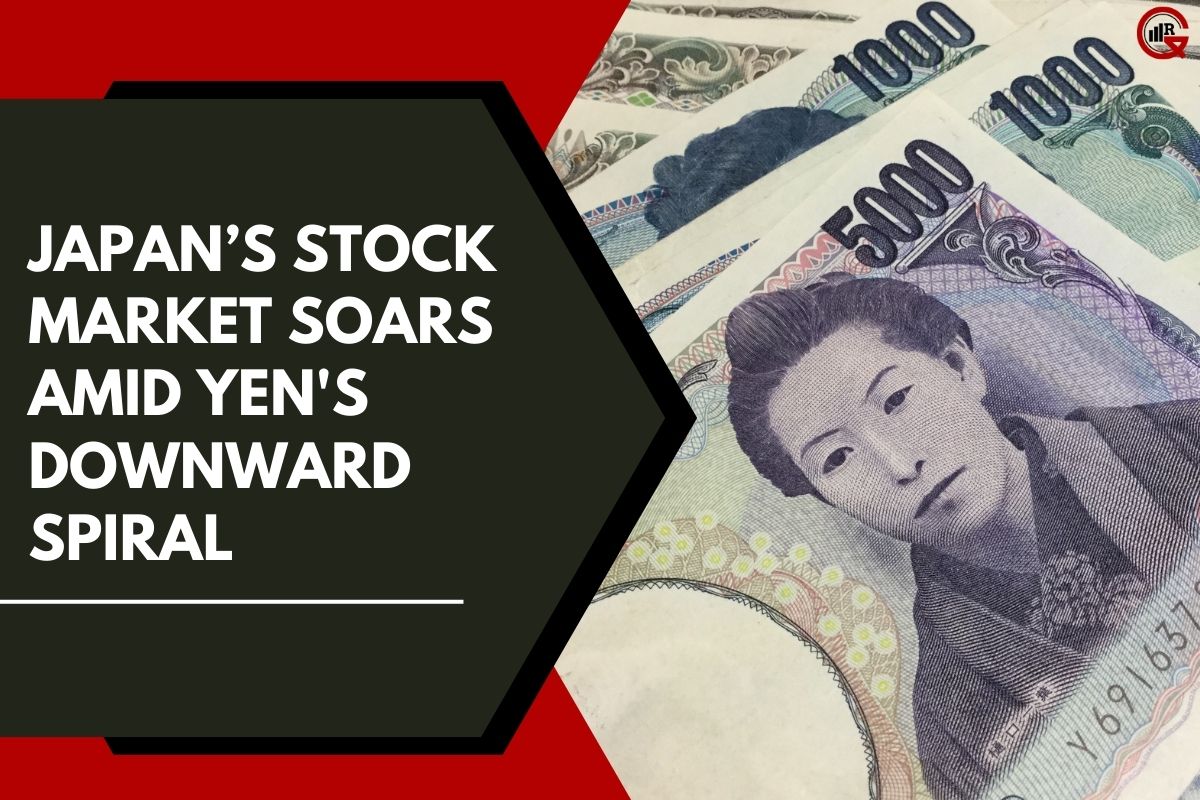In a striking tale of divergent fortunes, Japan’s stock market has been enjoying a historic bull run while its currency, the yen, faces a precipitous decline against the U.S. dollar. This intriguing narrative sheds light on the intricate interplay between economic factors, interest rate differentials, and global monetary policies.
A Resurgent Japan Stock Market
The Nikkei 225, a barometer of Japan’s top 225 firms, has witnessed a remarkable resurgence, surging by a staggering 130% since its pandemic-induced low in March 2020. This meteoric rise, outpacing even the formidable gains of the U.S. S&P 500 index, marks a significant turnaround for Japanese stocks after decades of lackluster performance characterized by the infamous “lost decades.”
Yen’s Downward Spiral
Contrary to the buoyancy in the stock market, the Japanese yen has experienced a sharp depreciation against the U.S. dollar, reaching a 34-year nadir. The primary driver behind this downward trajectory is the widening gap in expected interest rate differentials between Japan and other major economies, notably the United States.
Expected interest rate differentials, a key determinant of currency movements, play a pivotal role in shaping investor behavior and market sentiment. With the U.S. Federal Reserve embarking on a series of interest rate hikes to combat inflation, the allure of higher yields in the U.S. prompts investors to borrow yen at low rates for lucrative investments elsewhere, thereby exerting downward pressure on the yen.
Implications for Monetary Policy
The contrasting monetary policies of the Bank of Japan and the Federal Reserve further exacerbate the yen’s woes. While the Fed has raised rates to address inflationary pressures, the Bank of Japan has maintained negative interest rates, underscoring a stark policy divergence that tilts the scales in favor of the U.S. dollar.
Against this backdrop, market observers anticipate continued volatility in the currency markets, particularly amidst key policy meetings and economic data releases. However, some analysts foresee a potential rebound for the yen in the long term, driven by expectations of easing monetary policies in the U.S. and Europe, which could narrow the interest rate differentials and restore equilibrium.
Opportunities Amidst Challenges
Despite the prevailing headwinds, astute investors may perceive opportunities to “buy the dip” in the yen, betting on a prospective rate hike by the Bank of Japan and potential rate cuts in the U.S., which could mitigate the interest rate differentials and pave the way for yen appreciation.
In essence, Japan’s stock market resurgence juxtaposed with the yen’s downward spiral underscores the intricate dynamics shaping global financial markets and the delicate balancing act confronting policymakers in navigating uncertain economic terrain.






